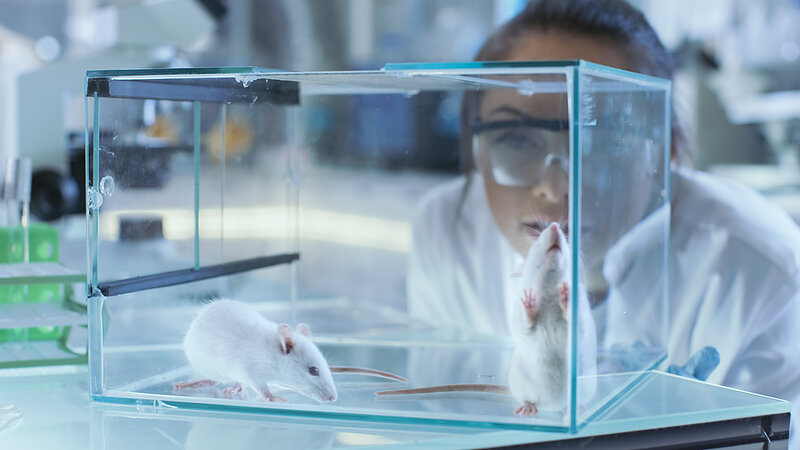USDA Under Fire for Relaxing Animal Welfare Inspection Standards
This article was originally written by Stefania Longo and published on Scientist.com.
It can be frightening when you realize that government entities may be cutting corners and hiding potential blunders from the public. It’s often easier to turn a blind eye when these mistakes don’t affect us personally, but there comes a point when we must recognize our duty to protect those who are being failed by governmental systems.
On April 5th, the Harvard Law School Animal Law and Policy Clinic filed a lawsuit against the United States Department of Agriculture (USDA) for failing to conduct full annual inspections, which is required under the Animal Welfare Act. Instead, the USDA was found to be outsourcing an essential function to a third-party nonprofit organization, the Association for Assessment and Accreditation of Laboratory Animal Care (AAALAC), meaning that the USDA is only conducting partial inspections on facilities if they are already AAALAC accredited. The reasoning for this shift in responsibilities? According to Dan Robitzski at The Scientist, the USDA made this decision as an effort to ease the excessive workload of their inspectors.
Why is it problematic for the AAALAC to be conducting inspections instead of the USDA? Although the AAALAC claims to promote the humane treatment of laboratory animals through voluntary accreditation and assessment programs, their inspection visits are announced in advance, preventing them from capturing an organic snapshot of how the site operates. Furthermore, the AAALAC is not required to share their findings with the public; instead, they only communicate whether the site passed or failed the inspection. Are we already seeing the impact of this change in strategy in US facilities?

Stefania Longo sat down with Meaghan Loy, MS, Senior Category Director of In Vivo Services at Scientist.com, to gather more information about animal welfare and gain insights from her own experiences conducting research with laboratory animals. Meaghan shared her frustration upon hearing about the USDA’s change in strategy and stated that although the majority of individuals in the industry are doing the right thing, it is crucial that we don’t let up on compliance because there are always outliers.
“We all in industry need to take a hard look at what we’re doing and what standards we are accepting. Yes it is a business, but your business involves other lives that you have to take responsibility for.”
These concerns highlight the need for independent, transparent assessments such as VERIF.i, Scientist.com’s supplier pre-assessment program. VERIF.i saves in vivo service providers time, money, and resources while differentiating their organization from competitors and enabling customers to select their services for more confidence and less risk. Importantly, VERIF.i assessments are available through the Scientist.com platform, which suppliers can share with their entire customer base. To learn more about VERIF.i, read the full article on Scientist.com!